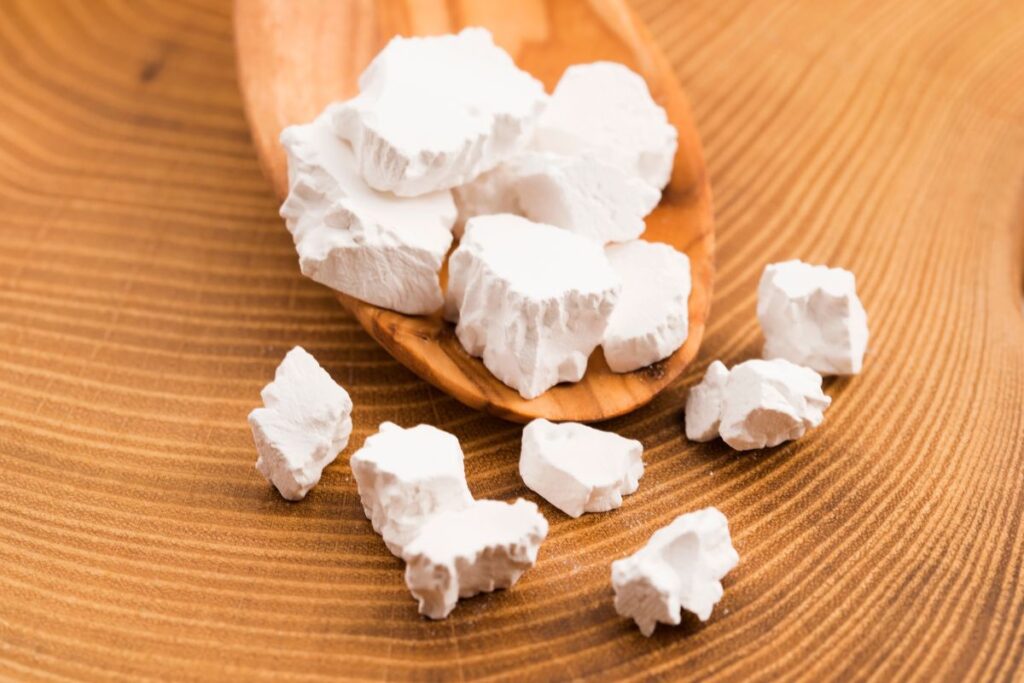Are you ready to embark on a culinary journey that uncovers the hidden powers of a seemingly unremarkable ingredient? Prepare to be intrigued by the surprising versatility of kuzu, a starch that has quietly shaped the traditions of Japanese cuisine and beyond.
From its humble beginnings as a wild vine to its transformation into a kitchen staple, kuzu’s story stretches far beyond its role as a thickening agent.
In fact, its benefits extend to health, nutrition, and even unexpected applications that challenge our perceptions of what a simple plant-based starch can do.
Join us as we peel back the layers of kuzu’s history and utility, and discover the richness that awaits those who dare to explore its many facets.
Origins and History of Kuzu
Tracing back centuries, Japan has cultivated kuzu, a versatile starch, as a culinary and medicinal staple. This powerhouse ingredient, deeply rooted in Japanese culture, offers you a unique blend of utility and tradition.
Originating from the kudzu plant, a vine native to Japan and other parts of Asia, kuzu’s journey from a wild plant to a culinary marvel is a testament to human ingenuity and nature’s bounty.
You’ll find that the process of transforming kudzu roots into kuzu starch is as fascinating as its history. It involves a meticulous procedure of washing, soaking, and straining the roots to extract the purest starch.
This labor-intensive method, passed down through generations, underscores the dedication to preserving both the integrity of the ingredient and its heritage.
Embracing kuzu in your culinary repertoire isn’t just about adding a thickener to your dishes; it’s about wielding control over your health and cooking with a purpose.
Its benefits extend beyond the kitchen, offering therapeutic properties that have been recognized for centuries.


Culinary Applications
Building on its rich history, kuzu offers a myriad of culinary uses that can transform your cooking and baking endeavors. Its unique properties allow you to thicken sauces, soups, and desserts with unprecedented control.
Unlike other thickeners, kuzu provides a smooth, glossy finish without altering flavors. You’re in charge, whether you’re aiming for a velvety gravy or a delicate pudding.
Dive deeper, and you’ll discover kuzu’s versatility extends to creating gluten-free options. It’s a game-changer if you’re catering to dietary restrictions, ensuring you can offer dishes that are inclusive yet delicious.
Imagine crafting perfect, gluten-free noodles or pie crusts that don’t compromise on texture or taste. With kuzu, you’re not just adapting recipes; you’re elevating them.
Moreover, kuzu’s benefits aren’t confined to texture and dietary alternatives. It’s also a natural way to add a nutritional boost to your meals. Integrating it into your cooking doesn’t just enhance the dining experience; it enriches the health quotient of your dishes.
You’re not just a cook; you’re a curator of healthful, satisfying meals. With kuzu, you wield the power to revolutionize your culinary practices, ensuring every dish is a testament to your skill and creativity.
Health and Nutrition
Delving into kuzu’s health benefits, you’ll find it’s not just a culinary marvel but also a nutritional powerhouse. Packed with flavonoids, this versatile starch aids in combating inflammation and reduces cravings, giving you the upper hand in managing your diet and health.
Its high fiber content supports digestive health, ensuring your system runs smoothly.
Kuzu also boasts a unique ability to balance blood sugar levels, making it an invaluable ally for those striving to maintain or achieve a healthier lifestyle.
By integrating kuzu into your meals, you’re not only enhancing flavors but also taking a proactive step towards better blood sugar control.
Moreover, its calming properties can help soothe stress and anxiety, empowering you to tackle your day with a more focused and relaxed mindset.
This aspect of kuzu turns it into more than just a food ingredient; it becomes a tool for enhancing your overall well-being.
In essence, incorporating kuzu into your diet offers you control over your health and nutrition, aligning with your goal to lead a balanced and healthy lifestyle.
You’re not just eating better; you’re choosing a path of wellness that resonates with your body’s needs.


Beyond the Kitchen
Kuzu’s influence extends beyond culinary applications, offering unique benefits in other aspects of life and wellness. You’ll find that its versatility can empower you in surprising ways, far from the confines of the kitchen.
For instance, kuzu starch is making waves in the sustainable packaging sector. Its biodegradable properties mean you can reduce your carbon footprint and take charge of your environmental impact with every product you choose.
Moreover, kuzu’s been tapped for its potential in natural remedies. If you’re seeking alternatives to conventional medicine, its applications in easing digestive issues and promoting relaxation are worth exploring.
This aligns with a proactive approach to health, allowing you to manage your well-being with nature’s offerings.
In the realm of beauty and personal care, kuzu offers a natural solution for skin health. Its anti-inflammatory properties can help you maintain a clear complexion, putting you in control of your skin care regimen with ingredients you trust.
Kuzu’s adaptability extends your ability to make informed, beneficial choices in various aspects of your life. Embracing its uses beyond the kitchen lets you harness its full potential, ensuring you’re in control of your health, environmental impact, and more.
Global Influence
While exploring kuzu’s versatile benefits in health and sustainability, it’s also key to recognize its growing impact on the global stage.
This powerhouse starch isn’t just a staple in Japan anymore; it’s making waves worldwide, offering you a unique edge in health and culinary innovation.
You’re seeing chefs and food innovators across the globe integrate kuzu into their dishes, not just for its thickening properties but for its health benefits, too.
This trend isn’t accidental. It’s a testament to kuzu’s adaptability and the global market’s hunger for versatile, sustainable ingredients.
Moreover, kuzu’s influence extends beyond the kitchen. Its sustainability factor is making it a sought-after commodity in eco-conscious circles. You’re witnessing a shift where consumers and industries alike lean towards more sustainable, plant-based alternatives, and kuzu is at the forefront of this movement.
Its cultivation supports biodiversity and soil health, offering you a way to contribute positively to the environment while enjoying its benefits.
In essence, kuzu’s global influence is a clear indicator of its versatility and value. Whether you’re a culinary enthusiast, a health-conscious individual, or someone passionate about sustainability, kuzu offers you a way to innovate and make impactful choices. Its rising popularity is a call to action, encouraging you to explore and embrace its potential fully.
Conclusion
You’ve uncovered the wonders of kuzu, Japan’s starch marvel. From its ancient roots to global kitchens, its versatility is unmatched. Whether you’re thickening soups, enhancing flavors, or seeking health benefits, kuzu’s got you covered.
Beyond culinary uses, its eco-friendly applications are impressive. Embracing kuzu not only enriches your dishes but also connects you with a tradition that spans centuries.
So, go ahead, incorporate kuzu into your life and witness its power firsthand.
But hey, we want to hear from you too! Is there any aspect of kuzu that you find overrated or perhaps a different perspective to share? Leave a comment below and let’s have a discussion!




Konnichiwa! (Hello!) I'm Pat Tokuyama, a Japanese tofu cookbook author, who travels for music, food, and adventure. If you like Japanese tea, checkout some of the newestorganic japanese tea, matcha bowls and noren and more!
** Curious about the Plant Based Japanese Cooking Club? ** Learn more here!